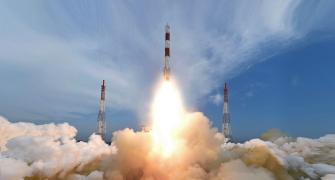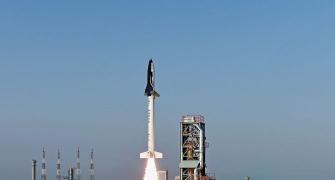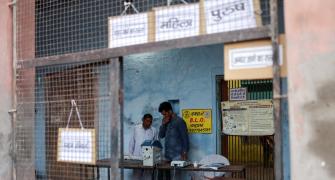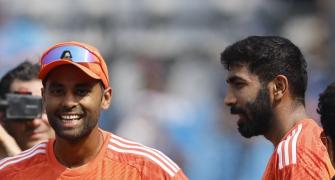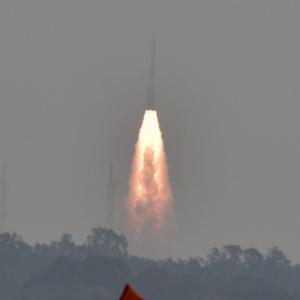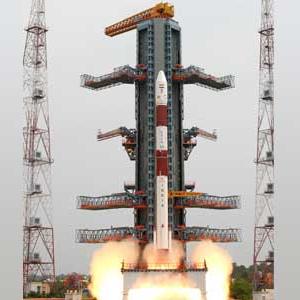 The Indian space agency has already begun work on the third generation of the earth observation satellite -- the first of which will be ready by 2018 and boost the capability to generate digital maps.
The Indian space agency has already begun work on the third generation of the earth observation satellite -- the first of which will be ready by 2018 and boost the capability to generate digital maps.
T E Narasimhan & Raghu Krishnan report
India’s space agency has begun work on the third generation of Cartosat earth observation satellites. The first in that series would be ready by 2018 and boost the capability to generate digital maps needed to build infrastructure in the country, said an Indian Space Research Organisation official.
The Cartosat-3 series will have around six satellites, some of which would replace existing remote-sensing satellites with more powerful capability.
On Friday, ISRO launched a Cartosat-2E earth observation satellite, along with 30 nano satellites for other customers that included the first-ever for Slovakia.
Spire Global, a US satellite firm was a repeat customer on the 40th flight of the Polar Satellite Launch Vehicle, the workhorse rocket which has emerged as a preferred vehicle for launching small satellites globally. Cartosat-2E is the seventh earth observation satellite in the series.
“ISRO will continue work on its earth observation, navigation and communication satellites,” said A S Kiran Kumar, chairman of ISRO.
“The PSLV is emerging as a credible launch vehicle for anybody across the globe, both because of the frequency at which the launch is happening and the access and timeline within which their satellites can be put into orbit.”
The 30 international customer nano satellites were launched as part of arrangements with Antrix Corporation, the commercial arm of ISRO.
Kumar said that with each PSLV launch, ISRO is trying to improve in capability areas such as multiple restarts and hurling satellites into multiple orbits.
The space agency is looking at three launches. One is to send a navigation satellite to replace IRNSS-1A, whose atomic clocks had failed, and two communication satellites, GSAT17 and GSAT-11, by December.
ISRO plans to have two launches each of Geosynchronous Satellite Launch Vehicle Mark II and Mark III, and eight to 10 launches of PSLV rockets a year, Kumar said.
ISRO’s earth observation programme envisages continuity of the thematic series -- Resourcesat, Cartosat, Oceansat, RISAT, and INSAT for land, water, ocean and meteorological satellites.
It also envisages placing a geo-imaging satellite in geostationary orbit to enable near real-time imaging.
Image: ISRO's PSLV C38, carrying earth observation satellite Cartosat-2 Series and 30 co-passenger satellites of various countries, lifts off from Satish Dhawan Space Center in Sriharikota on Friday. Photograph: PTI Photo


